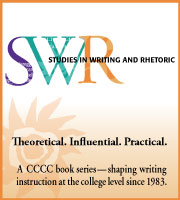Characterization of Institution
Research I
Characterization of Department
Ph.D. granted in English
Ph.D. granted in Composition/Rhetoric
M.A. granted in English
M.A. granted in Composition/Rhetoric
B.A. granted in English
How would Jared Johns’ case turn out in your department? At your university/college?
Probably very much like it did here—the Promotion and Tenure committee would be very concerned about John’s low number of refereed publications and would want the chair to send him a strong message about the need to focus his efforts on such publications. If he were to come up for promotion and tenure with this profile, he’d likely not receive it at the college or university level.
What are the Department Chair’s responsibilities toward Johns? Which did she/he fulfill? Fail?
The chair’s obligations to Johns include making the criteria for promotion and tenure clear to him and to be sure he understands, early in his career, which of his work will be helpful and which will not. His conference with Johns in his first year was a step in the right direction, since he offered him specific advice about his research and teaching, but it appears that there was not as much follow-up as there could be. It also appears that Johns was given quite a bit of very time-consuming service work, and that might not have have been fair to him, despite the released time he received for it.
What are the Personnel Committee’s responsibilities toward Johns? Which did they fulfill? Fail?
It appears that the Personnel Committee at this institution does not do annual reviews of untenured faculty. If that’s the case, then perhaps the committee did what it was required to do. However, I think it’s critical for untenured faculty to be reviewed much more frequently by those who will vote on their promotion and tenure. By the fourth year, there’s little that can be done to turn around a situation like Johns’. In this case, the thorough review Johns received came two years too late to help him. It also seems to me that the committee may have placed too much emphasis on traditional teaching and not enough on Johns’ work with students, both formally on graduate students’ committees and informally in the computer facility.
What are the responsibilities of the Dean? Which did she/he fulfill? Fail?
Sorry, I don’t see any references to the Dean in this scenario. And I don’t think that during the probationary period, Deans typically have much involvement with untenured faculty. That’s mostly a departmental responsibility.
What are Johns’ responsibilities? Which did she/he fulfill? Fail?
Johns’ responsibilities include understanding the criteria on which he will be evaluated for promotion and tenure and focusing his work so that it dovetailed with those criteria. He probably should have understood that he needed to publish his work in the kinds of forums that are accepted and recognized at his institution, since it’s very difficult to be a “break-through” case. He also had the responsibility to work hard to improve his teaching, since it was made clear to him that there were concerns about its quality. Johns did seem to fulfill his responsibilities in terms of administering the computer facility and working with graduate students. He certainly seemed to be a good colleague—one who shared his expertise willingly with his peers and students. He was clearly establishing a national reputation among people in his area of expertise.
What went wrong? What went right?
Two things went wrong. First, the department did not seem to give Johns the kind of detailed “warning” about his status until too late. Second, Johns, like a number of new faculty I’ve seen, didn’t seem to understand that ultimately his service contributions and his non-tradtional publications would not help him earn tenure and promotion. He seemed not to understand how conservative most universities are—looking for traditional peer-reviewed publications and teaching evaluations that are at least average for the institution and the courses. Though Johns’ chair did seem to talk to him about these issues early in his career, there did not appear to be enough regular subsequent evaluation and/or mentoring.












